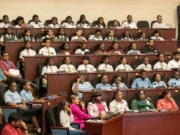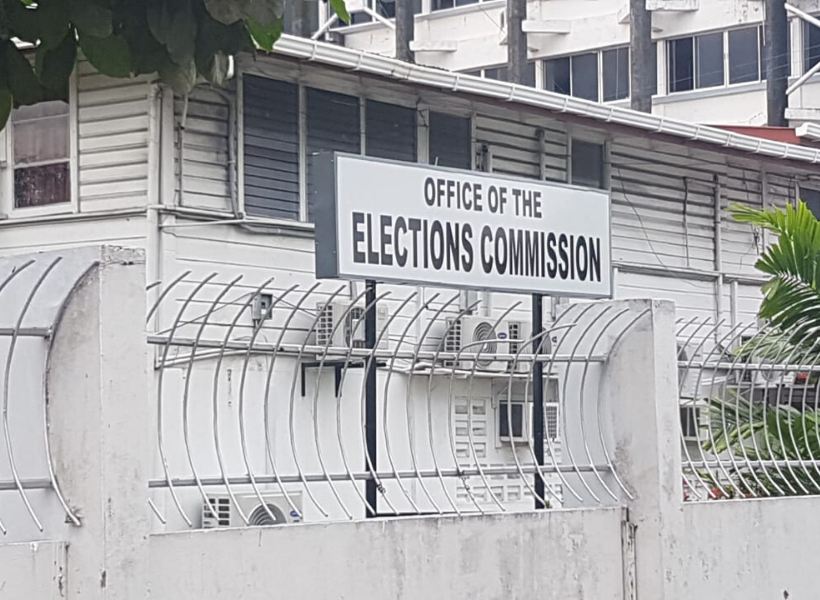The data from the truncated house-to-house registration process was encoded and sent to an overseas firm called Gemalto to have the fingerprints of registrants crossmatched. The Guyana Elections Commission (GECOM) has already received 180,000 of these prints, with 190,000 expected to arrive this Saturday.
This is according to Commission’s Chairperson, Justice (Retired) Claudette Singh, who, during an interview on Kaieteur Radio, divulged that it was that data that was exhibited for public scrutiny during the Claims and Objections period.
Justice Singh noted that the decision to publish the data was the only one taken since the cessation of the process back in August.
She said that the Chief Justice (CJ) Roxanne George, “having ruled the process legal”, she (Justice Singh), took the decision to use the data.
“Any data deduced from such a process should be legal, and that is my stance on the house-to-house data,” she said.
Justice Singh, however, admitted that the process had to be cancelled due to circumstances stemming from the clamour for early elections subsequent to the validation of the no-confidence motion by the Caribbean Court of Justice (CCJ).
“We (GECOM) were not acting under normal circumstance, GECOM would have carried on with the house-to-house process until the end. But because of the circumstances, I ruled,” she said.
The house-to-house registration has been a contentious process. Justice Singh confirmed this much when she said that the process sought to “retire” the National Register of Registrants Database (NRRDB), by refreshing the names of persons on that list. The CJ, however, ruled that it was unconstitutional to remove names from the database.
The GECOM Head noted that the body is on track for the hosting of free and fair elections on March 2, 2020. She said that the commission is keeping within the statutory timelines.













